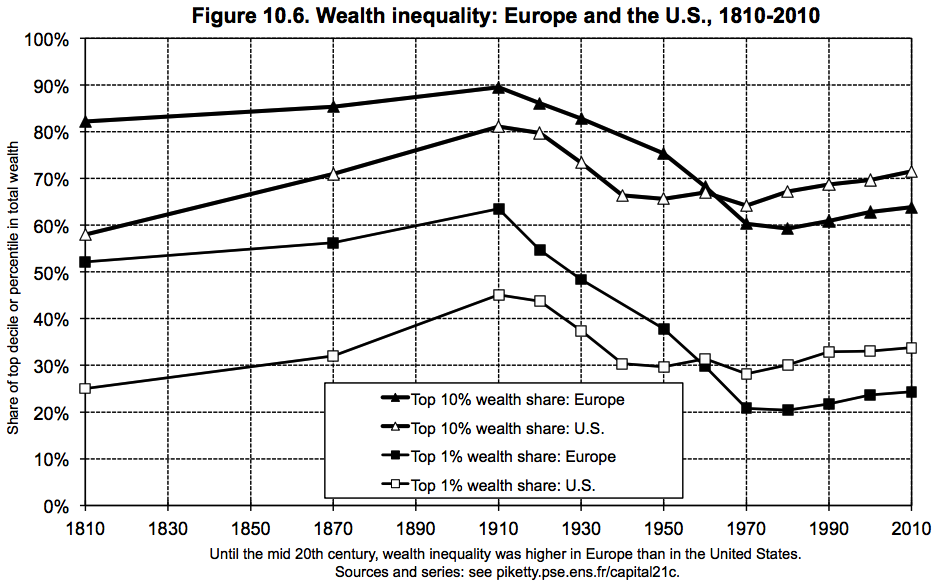RAE
Thinks s/he gets paid by the post
I tend to worry about things that I can actually do something about.
Abstracts like this make me say "what's it got to do with me?".
Well, there's no doubt that the country could do something to address wealth inequality, if the political will was there. The problem, of course, is that the people that most benefit from wealth inequality (the 1%, and especially the 0.1%) largely control political policy (including tax policy), so it becomes very, very difficult to change the current course we are on.
No disrespect intended, but "what's it got to do with me"? seems like a rather narrow, self-centered view of the situation. As RobLJ said, a whole lot of wage workers in this country have been struggling to make it for the last 30+ years, while the rich continue to get richer. Lots of college grads are struggling to make it these days now also (including some relatives of mine). Sure, some have made poor decisions that contributed to their struggles, but plenty did everything right and are still barely keeping afloat. Heck, if I were graduating college today, I'd probably be struggling to make it too, as the situation is much different today than when I got out of college. So I try to empathize with the plight of some of these folks, as I would not want to be graduating high school or college right now in this tough economic environment.


